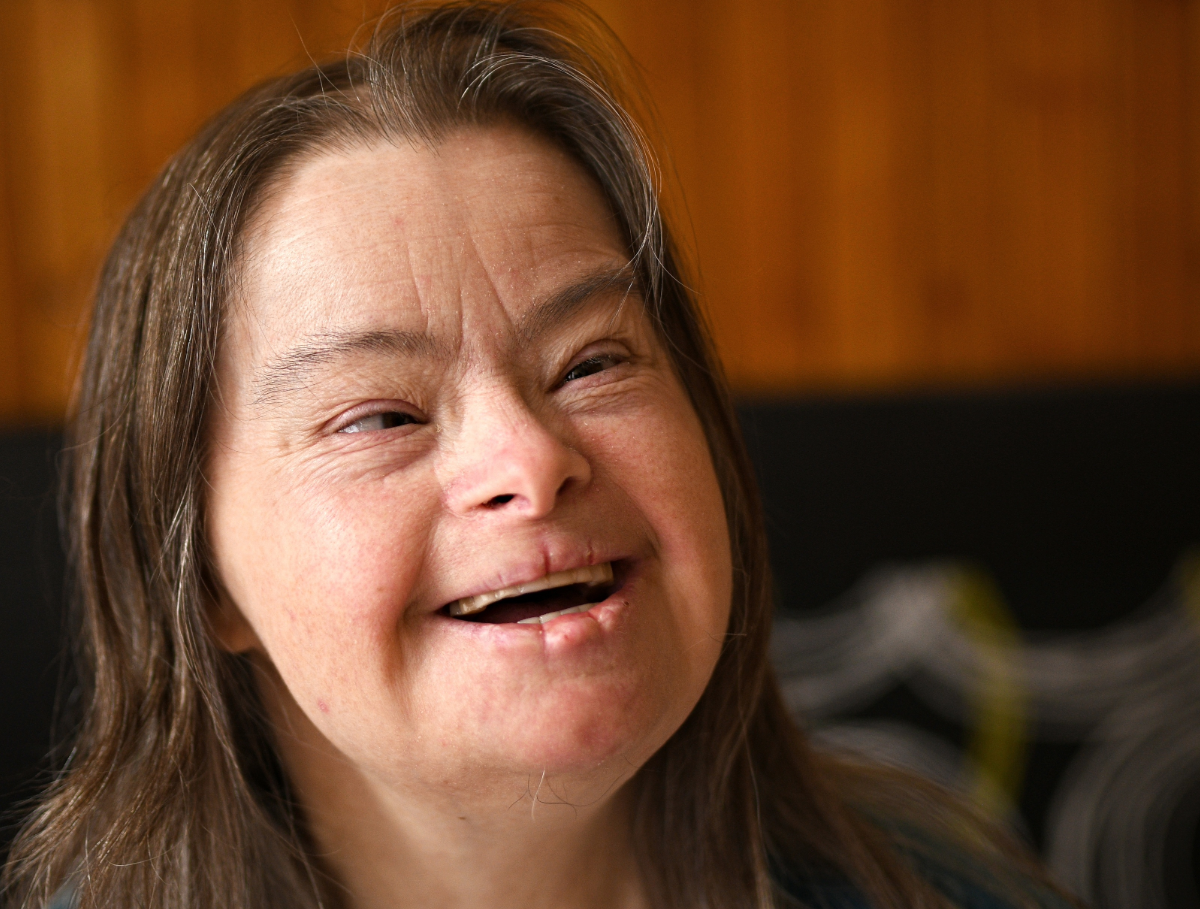ABATE study to test a vaccine for Alzheimer’s disease in people with Down syndrome
In 1960, people with Down syndrome lived to 10 years of age, on average, according to the Centers for Disease Control and Prevention. Today, thanks to improvements in health care, people with the disorder live much longer, with an average life expectancy of age 60. While this is great news, it brings with it an urgent need to address the challenges of aging in people with Down syndrome. Alzheimer’s disease is at the top of the list.

People with Down syndrome are at very high risk for developing Alzheimer’s disease, with a more than 90% chance of developing dementia in their lifetimes. The disease has a devastating impact on how people live their lives, starting with memory loss and other problems with thinking that get worse over time. Eventually, complications from Alzheimer’s can result in the complete loss of independence and early death.
Unfortunately, there’s still no way of preventing Alzheimer’s. There are few treatments, and none of them have been tested in people with Down syndrome.
The ABATE study is the first clinical trial testing a vaccine intended to help slow down or even prevent Alzheimer's in people with Down syndrome. The University of Kansas Alzheimer’s Disease Research Center is one of the study sites in this multi-site clinical trial.

“People with Down syndrome are often underestimated and unfairly excluded from research,” said Lauren Ptomey, Ph.D., co-director of the Brain Health in Down Syndrome Program at KU Alzheimer's Disease Research Center and associate professor in the Department of Internal Medicine at KU School of Medicine. “It is critical to recognize that people with Down syndrome are not only capable of participating in research studies like ABATE, but they also want to be included in research.”
Approximately 80 people with Down syndrome will take part in the ABATE study. (The vaccine is also currently being tested in Europe in older adults who do not have Down syndrome.)
The vaccine that ABATE is testing, ACI-24.060, is designed to teach the body to remove amyloid-beta plaques from the brain. Amyloid-beta plaques are clumps of protein that build up in the brains of people with Alzheimer’s. People with Down syndrome have an extra copy of the gene that makes amyloid protein, so their bodies make more of it. That is the reason that people with Down syndrome have a more than 90% lifetime risk of developing dementia from Alzheimer’s.
Clearing amyloid-beta from the brain is theorized to be one way to slow Alzheimer’s down. The U.S. Food and Drug Administration has approved two antibody drugs to treat early Alzheimer’s that work this way. The ABATE vaccine also targets amyloid in the brain but is designed to prevent its accumulation. This is thought to be safer, more convenient and less expensive than the actions of these already approved antibody drugs. Study participants receive either ACI-24.060 or a placebo six times over an 18-month period, during which they will also have visits at the study clinic, and their health will then be monitored during the six-month follow-up period.
The ABATE study has two main goals. The first is to confirm the vaccine’s safety in people with Down syndrome. No safety concerns have arisen so far in trials that have tested the vaccine in people without Down syndrome.
The second goal is to see if the vaccine can slow down memory loss and thinking problems in people with Down syndrome. Eligible ABATE study participants include people who:
- Have Down syndrome.
- Are between 35 and 50 years old.
- Have someone who can accompany them to study visits and help record symptoms and side effects between visits.
“The ABATE study is tackling a serious problem that impacts both the lifespan and quality of life of almost every adult with Down syndrome: Alzheimer’s disease,” said Ptomey. “We hope that by including people with Down syndrome in ABATE, we can learn more about the disease and maybe even find a treatment to stop it from happening.”
Interested in participating in the ABATE study?
The ABATE study is testing an investigational vaccine for Alzheimer’s disease in people with Down syndrome.
Who can participate?
- Those with Down syndrome who are 35-50 years old and can provide a study partner, such as a caregiver, parent or friend.
Study details
- Participants will be in the study for about 2 years.
- During that time, participants will have to come to the study clinic for about 19 visits.
To learn more, call (913) 588-0555, option 1, or visit kuadrc.org/ABATE.